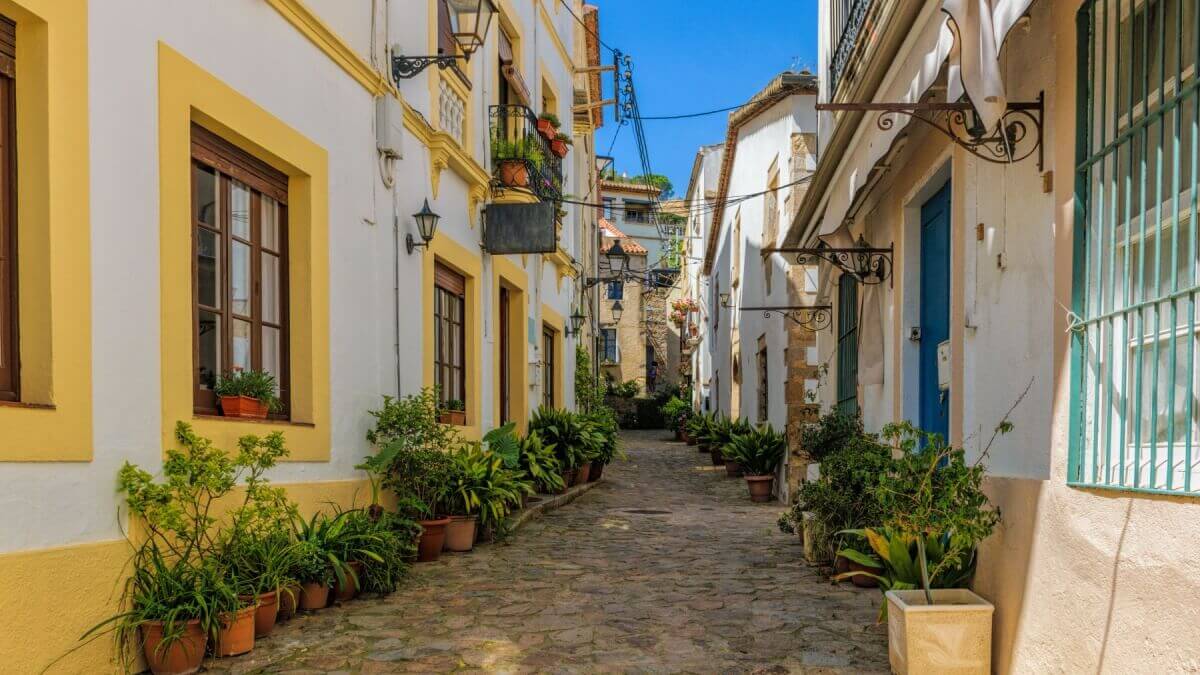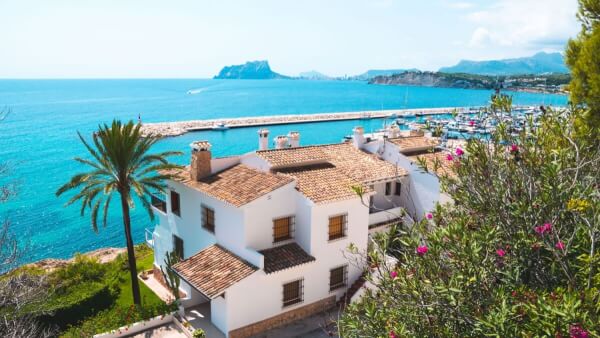How to register your marriage in Spain (UK guide)
Planning to relocate or need to register marriage in Spain? We'll show you what you need to do to get married or register an existing marriage in Spain.

Just bought a property in Spain and are looking to rent it out? Perhaps you have a holiday home there and fancy making some extra cash renting it out when it’s not in use.
In either case, you’ll need to know about the tourist rental licence (Licencia de Vivienda Turística) in Spain. In this helpful guide, we’ll cover everything you need to know - including what the licence is, who needs it, what it costs and how to apply. And crucially, the penalties for not having a licence.
And a quick tip - if you’re earning rental income in Spain, you can use Wise for a secure and low-cost way to transfer it back to the UK. With a Wise account, you can receive money in EUR for free, and convert it to GBP for low, transparent fees* and mid-market exchange rates. It’s not a bank account but offers some similar features, and your money is safeguarded.
➡️ Learn more about the Wise account
The tourist rental licence (known as Licencia de Vivienda Turística or Licencia de Vivienda de Uso Turístico) is a formal permit issued by the local authority in the region your property is situated in.
It’s required in order to let out properties for short-term stays, usually of less than 30 days per guest/booking.¹
The licensing requirements apply across nearly all of Spain, but differ between the autonomous communities (Comunidades Autónomas) of the country.
The aim is to ensure properties meet the required standards for safety, habitability and quality, and to generally regulate the short-term rental market. Licensing also helps more popular tourist areas of Spain to maintain a balance between residential homes and holiday accommodation.
The concept of tourist rental licences was introduced in Spain back in 2013.
But in 2025, there have been a number of major changes that anyone owning rental property in Spain needs to know about.
As of 1st July 2025, the following changes have come into effect:¹
If you own a property in Spain and you’ll be renting it out for less than 30 days at a time, it’s very likely that you’ll need a tourist rental licence of some kind.¹ You’ll need to check with the local town hall (ayuntamiento) or regional tourism department in the part of Spain your property is located in.
So before you list your property on Airbnb or Booking.com, it’s crucial to look into getting a licence.
You shouldn’t need this specific kind of licence for other kinds of rentals though. For example, if you have a long-term tenant staying at least 6-12 months on a rental contract. Other rental licences may be required in this case - again, you’ll need to contact the local authorities in the region to find out what you need to do.
In Spain, letting out your property to tourists without a licence is illegal - and the penalties can be serious. For example, the authorities in the Balearic Islands have previously issued fines up to €400,000 EUR for non-compliance, while fines have been as high as €600,000 in Catalonian cities like Barcelona.¹
Also, it’s really easy for the authorities to check whether a property is licensed or not. Now that a new National Registry for Tourist Rentals has been introduced, enforcement officers can quickly check whether your property has a licence. If it doesn’t, your property could be closed and the listing removed, and you could even be prosecuted and fined.
It’s reasonably straightforward to apply for a tourist rental licence in Spain, as the process is all done online. You need to go to the Colegio de Registradores (property registration) digital portal and follow these steps:¹
To apply for your licence, you’ll need the following documents:¹
You may also need to have some photo ID, as well as energy performance certificates or additional documents for the property as required by the specific local authority.
There are fees involved with getting a tourist rental licence for your Spanish holiday property - and these can be expensive in some parts of the country.
Each region sets its own licence fees, and these are based on factors such as the type of property (detached houses and villas tend to be more expensive than apartments) and how tourist-heavy the area is. You’ll need to check the fees in your area, but they can range from just a few hundred euros all the way up to €20,000 EUR or even more.
There are other fees to consider too, such as the cost of getting a habitability certificate or Energy Efficiency Certificate (CEE). You may also need a lawyer to help with compliance and paperwork.
Here’s a quick overview of the potential costs involved:¹
| Type | Approximate costs |
|---|---|
| Licence fee | Varies, could be up to €20,000 EUR |
| Habitability certificate | €200 to €500 EUR |
| Energy Efficiency Certificate (CEE) | €150 to €300 EUR |
| Legal/professional services | €400 to €1,000 EUR |
| Civil liability insurance (mandatory in some regions) | €150 to €500 EUR per year |
The most crucial thing you need to do after you’ve successfully applied for your tourist rental licence is to display your tourist licence number. It’s mandatory to display it on all property listings (i.e. on Airbnb, Booking.com and other sites, including your own website) and on all promotional and marketing materials.
You should also keep an eye on how long your licence lasts, as in some areas you’ll need to renew it every few years.
Looking for smart ways to manage your money between the UK and Spain? Check out the Wise account. It's not a bank account but offers some similar features and your money is safeguarded.
With the Wise account, you can send, spend, hold and convert money in 40+ currencies, for low, transparent fees* and mid-market exchange rates close to what you see on Google.
You can also get a Wise card for a one-time fee of £7 (or the Wise virtual card for £0) to spend in 150+ countries. This clever card automatically converts your pounds to the local currency whenever you spend, only adding a tiny, upfront currency conversion fee* – or it’s fee-free if you already have the local currency in your Wise account.
| Here’s an overview of the main benefits of using Wise: |
|---|
|
**Capital at risk. In the UK, Interest and Stocks are provided by Wise Assets — this is the trading name of Wise Assets UK Ltd, a subsidiary of Wise. Wise Assets UK Ltd is authorised as an investment firm and regulated by the Financial Conduct Authority (FCA). Our FCA number is 839689. We do not give investment advice, and you may be subject to pay tax. If you're not sure, seek qualified advice. You can find more information about the funds on our website.
Sources used:
Sources last checked on date: 20-Aug-2025
*Please see terms of use and product availability for your region or visit Wise fees and pricing for the most up to date pricing and fee information.
This publication is provided for general information purposes and does not constitute legal, tax or other professional advice from Wise Payments Limited or its subsidiaries and its affiliates, and it is not intended as a substitute for obtaining advice from a financial advisor or any other professional.
We make no representations, warranties or guarantees, whether expressed or implied, that the content in the publication is accurate, complete or up to date.

Planning to relocate or need to register marriage in Spain? We'll show you what you need to do to get married or register an existing marriage in Spain.

Read this to find out about the Beckham tax law in Spain, including how it works and which UK expats are eligible for it.

Plans for new 100% property tax in Spain for UK buyers announced - read this to find out everything you need to know, and what to do next.

Read our helpful guide on how to transfer a UK pension to Spain, including the steps, fees and taxes involved.

Find out everything about the highly qualified worker permit in Spain including requirements, benefits and the application process.

Here’s everything you need to know about private healthcare in Spain for expats. Learn about the best providers, costs and more.